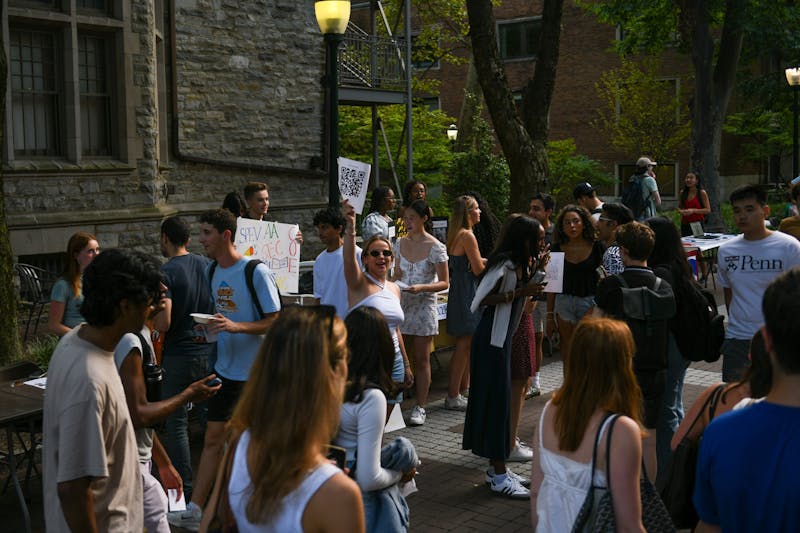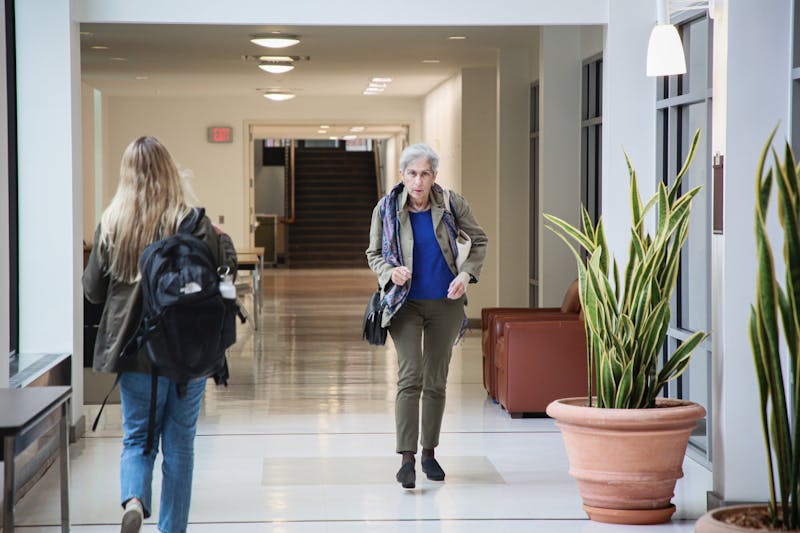For most of us, Penn's a place for making new friends and pursuing intellectual challenges.
But for some students, the college years are also the ideal time for getting plastic surgery. The benefits are obvious. In transitioning from a familiar hometown to a campus populated mostly by strangers and to the even more alien "real world," there is little chance of meeting someone who would recognize that you had work done.
This logic rings particularly true for certain segments of the population, especially Asian American females like myself. "Asian women as a whole have the most plastic surgery relative to any other racial group," said Pan-Asian American Community House Director June Chu.
In fact, the most popular type of operation this group undergoes is one that mainstream America probably doesn't recognize: single eyelid surgery. As Chu told me, "I've met white people that actually don't realize there's a difference in the eyefold."
For those unfamiliar with single eyelids (also known as "monolids"), the concept refers to the lack of creases in the skin above the eyes, and they are a physical feature common amongst East Asians. A monolid operation essentially involves the removal of bits of flesh from the area to create an artificial crease directly above the eye, leading to the desired "double lid".
"It's definitely something I've considered, since this surgery is really fast and painless," said a College sophomore, who preferred to remain anonymous. "I also have a special glue, where you put a little bit on your eyelid and it folds by itself, so it's really easy for me to get double lids."
This kind of sentiment begs the question of why exactly eye creases are seen as attractive in the first place. In turns out that many Asian Americans normally associate the favored double lid with European features. Of course, controversy rears its head.
I confess I've never personally had to wrestle with this dilemma since I was born with double lids. Even so, I find myself applying liberal amounts of black kohl every morning in an effort to better define my eyes. And while I do make a distinction between makeup and surgery, I can't help but wonder: Where do we draw the line between trying to look beautiful and trying to look white?
This trend isn't just restricted to eyelid operations. Although they remain considerably less common, Asian-specific rhinoplasties are also gaining in popularity. These nose jobs involve inserting artificial material underneath the skin to create a higher bridge, a physical feature similar to double lids in its appeal. For instance, College and Wharton senior Joyce Lin told me, "When I was little, my mom used to tell me to pinch my nose to make it taller."
These Asian American beauty measures extend beyond just plastic surgery. In stores across East and South Asia, cosmetics counters normally stocking self-tanning lotions and bronzers instead are chock-full of skin-whitening solutions. Even in the United States, the land of orange spray-on tans, the preference for lighter skin among Asian American communities remains undiminished.
"All of my friends back home in Atlanta bleach themselves, and this is something they've been doing for years," College junior Rahima Dosani said. She added, "I'm not considered to be Indian a lot of the times [by outsiders] because I'm really light-skinned, so I'm trapped either way. It creates a lot of identity issues."
To be sure, it isn't easy growing up Asian American in consumer markets dominated by Western multinational companies. The 80s and 90s saw little Asian representation in the media, and only in recent years have we seen advertisement models hailing from diverse cultural and ethnic backgrounds.
"When you see only a Euro-centric version of beauty, that's what you gravitate toward," College freshman Justin Ching said, "Even in Asia, the ads that have people portrayed as sex symbols are still mostly white."
And while European features may not continue to define the ideal standard of beauty in Asia as Asia becomes more economically competitive, Asian American youths still must grapple with the challenges of delineating physical attractiveness.
In the end, whether it's monolid surgery or a nose job or skin bleaching, beauty remains very much a personal choice.
At the same time, we should think carefully about what these types of surgeries say about our own identities in this country - before we choose to go under the knife.
Lisa Zhu is a Wharton and College junior from Cherry Hill, NJ, United Minorities Council chairwoman and Undergraduate Assembly member. Her e-mail is zhu@dailypennsylvanian.com. Zhu-ology appears Fridays.
The Daily Pennsylvanian is an independent, student-run newspaper. Please consider making a donation to support the coverage that shapes the University. Your generosity ensures a future of strong journalism at Penn.
DonatePlease note All comments are eligible for publication in The Daily Pennsylvanian.







